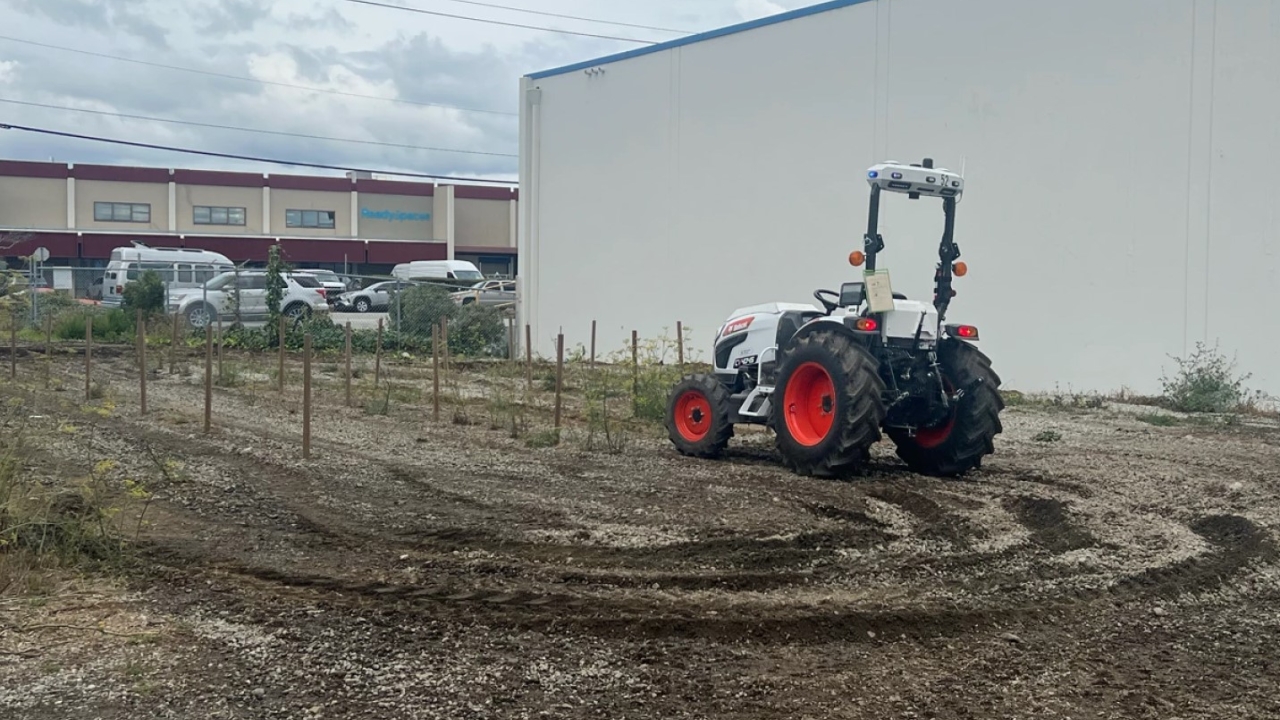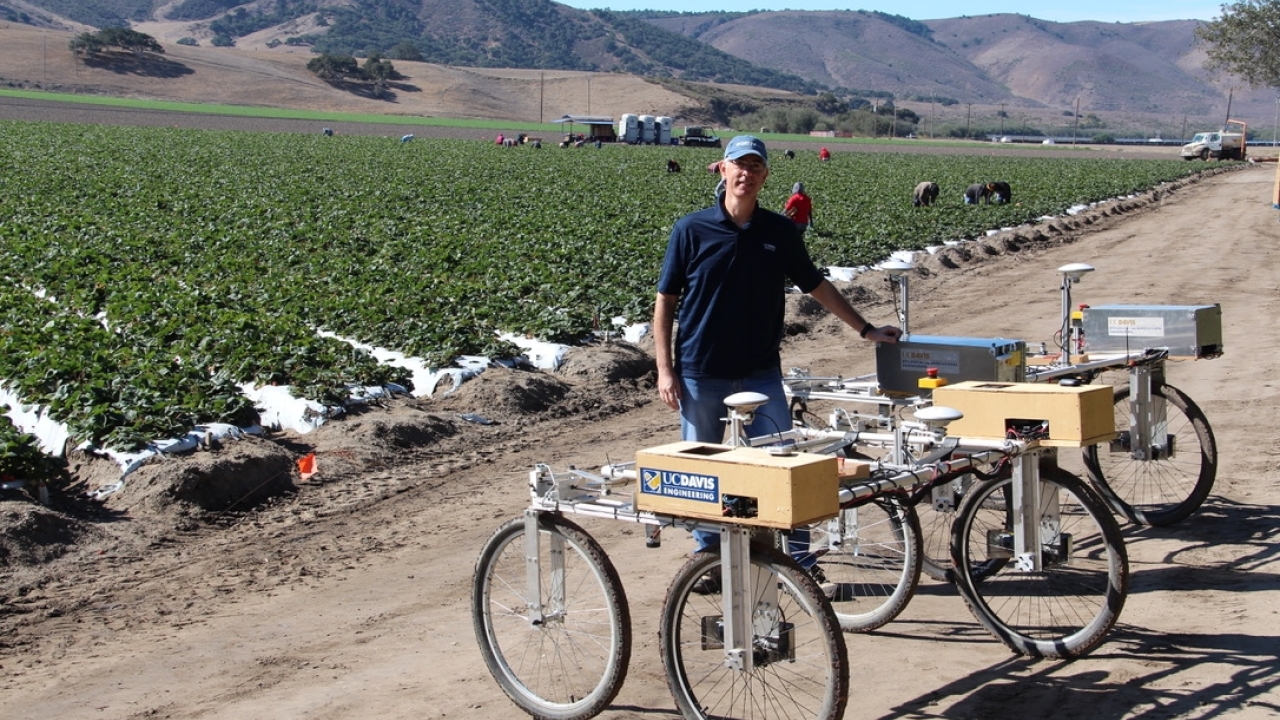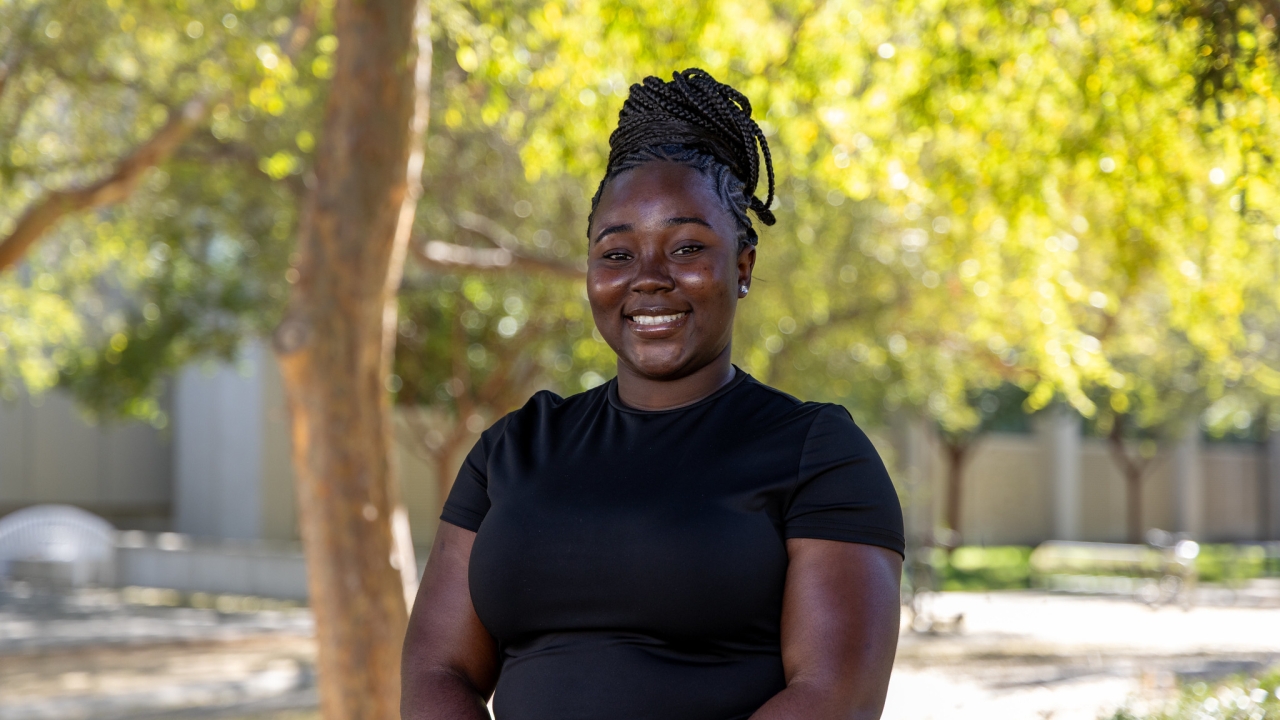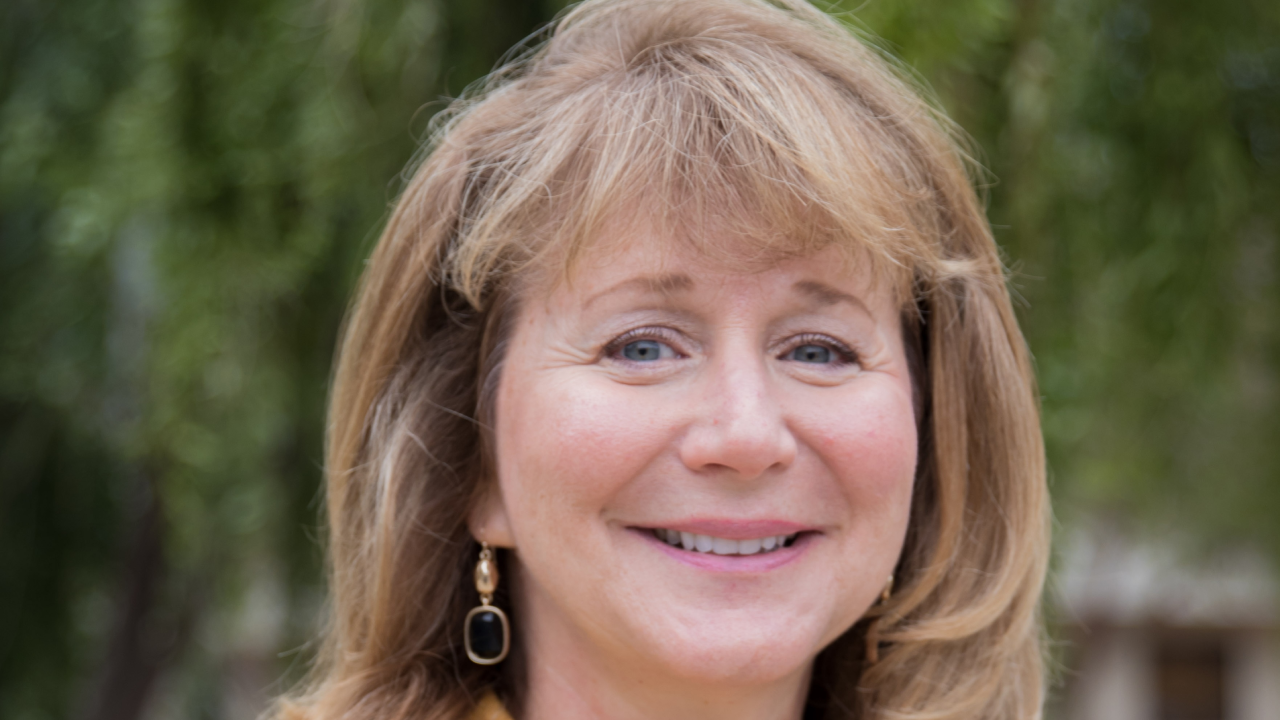
Jennifer Sinclair Curtis
Jennifer Sinclair Curtis Embraces Her Role as New Dean
By Derrick Bang
JENNIFER CURTIS HIT THE GROUND RUNNING, when she arrived at UC Davis in late October 2015.
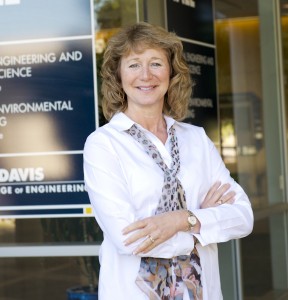
“I thrive on being busy,” she smiles, “and I have lots of plans.”
Curtis, who became Dean of the College of Engineering that month, is quite impressed by what she’s found at her new academic home. “The raw power of the college’s faculty, and their level of creativity, are unbelievable. People are warm and collaborative, and they’re passionate about their work. They’ve also been recognized to an impressive degree: We have more national academy members, as a percentage of total faculty, than a number of the Top 10 schools.
“We need to be better about spreading the news that UC Davis is laden with great talent and achievement!”
Curtis comes to UC Davis following an 11-year tenure at the University of Florida’s College of Engineering, where she rose to Associate Dean for Research and Facilities after serving as Chair of the Department of Chemical Engineering. Her numerous executive responsibilities in the Sunshine State included a role as Director of the Florida Energy Systems Consortium, an energy research collaboration involving all 12 of Florida’s state universities.
Curtis completed her undergraduate work in chemical engineering at Purdue University, and earned her PhD in the same field at Princeton. An initial academic position at Carnegie Mellon University was followed by a return to Purdue, where — as Associate Dean of the College of Engineering — she helped launch a new Department of Engineering Education: the first in the U.S. As a researcher, she is recognized for her pioneering work in the development of numerical models for the prediction of particle flow phenomena. The importance of her research has been validated, over time, via multi-year funding from major corporations such as Alcoa, Chevron, Dow, DuPont and Pfizer.
At UC Davis, she’s ready to embrace structure, organization and strategic planning. “I want to get all the pieces aligned, so we’re all moving in the same direction: toward large initiatives that will bring us even more national visibility.”
Curtis has devoted her career to enhancing the reputation and diversity of the next-gen engineering pool, and she’s eager to channel that energy toward UC Davis.
“Consider industry internships,” she suggests. “There’s a sense that we don’t have enough students participating, possibly because they’re not aware of the wide range of internships and jobs that are available. We need to get that message across from the moment students arrive on campus, so I’d love to see a seminar course that brings in working professionals every week, to share their views on getting connected, and the mechanics of seeking out internships.
“On a similar note, industry frequently tells academia that students who embrace study abroad programs, who are willing to climb out of their comfort zones, are destined to be future leaders. And yet, right now, too few of our engineering students participate in study abroad programs. We need to develop methods that will further encourage student participation.
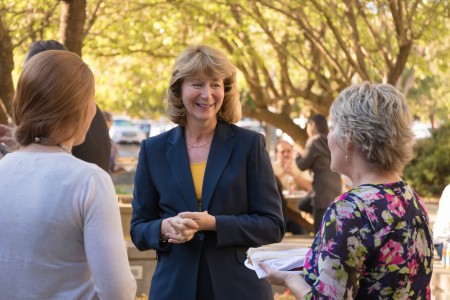 “We know that our students are outstanding technically, but I want to make sure that they gain leadership skills, and see themselves as global citizens.
“We know that our students are outstanding technically, but I want to make sure that they gain leadership skills, and see themselves as global citizens.
“I’d also like to develop a certificate program in leadership and expand the existing technology management minor program so students can obtain this type of knowledge to supplement their engineering degrees. I look forward to partnering with the Graduate School of Management to help develop and improve these skills in our students and faculty.”
Curtis points with enthusiasm to the College of Engineering’s recent entrepreneurial initiatives, such as the Engineering Student Startup Center (ESSC), the Dorf Design and Communications Classroom, and expansion plans for the college’s Engineering Fabrication Lab.
“Our entrepreneurial training is terrific, and the participating students love it just as much as our corporate advisory board members,” Curtis acknowledges. “However, the number of students served remains a small fraction of our undergraduate base. All these things are successful, but we need to scale them up, and to engage all of our freshmen.”
She understands that these goals would require a greater time commitment by faculty, since such interactive courses will be more like hands-on lab research.
“The size of the College is important, and we’re hiring 15 new faculty this academic year alone. Five years from now, I’d like to see a 15- to 20-percent growth, to bring our faculty to between 230 and 240. That’ll also achieve our goal of improving the faculty/ undergraduate ratio, to decrease the number of students per professor, so we become commensurate with our peers.
“That also means adding to the infrastructure and facilities for education and research, so I plan to be very involved with our development efforts.”
Curtis also recognizes the crucial importance of high-profile research work.
“We’ve had several big wins during the past few months,” says Curtis, citing the $15.5 million National Institutes of Health Transformative Research Award to build the world’s first total-body PET scanner; the collaborative $18.5 million National Science Foundation Engineering Research Center grant, which will partner UC Davis in a new Center for Bio-inspired and Bio-mediated Geotechnics; and a $5 million National Science Foundation award to the UC Davis Center for Geotechnical Modeling as part of the National Hazards Engineering Research Infrastructure (NHERI) program.
Bringing the world to the UC Davis College of Engineering clearly is a top priority for Curtis.
“I want to hire proposal consultants, who will work alongside faculty from the very beginning of a research pitch: to help with team- building and visioning, through the entire process. I had great success with this at the University of Florida, and there’s no question that we’ll get many more submissions if our UC Davis faculty know that the college will support them during such large-scale proposal initiatives.
“When we win, it’s huge research dollars, and it’s also an outstanding educational opportunity for our students.
“And, best of all, research awards validate our talented faculty, bringing great credibility and prestige, which gains huge visibility for our College of Engineering.”
VIDEO: Meet Dean Jennifer Sinclair Curtis
Profile of Jennifer Sinclair Curtis, written by Nicholas Peppas, Gintaras Reklaitis, and Erik Ydstie.


